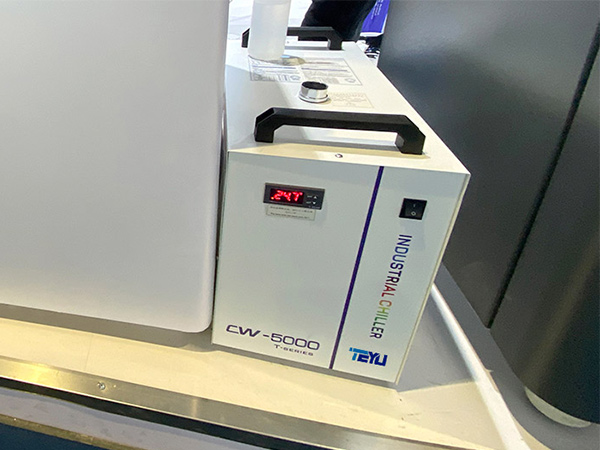CO2 laser welding machines are ideal for joining thermoplastics like ABS, PP, PE, and PC, commonly used in automotive, electronics, and medical industries. They also support some plastic composites like GFRP. To ensure stable performance and protect the laser system, a TEYU CO2 laser chiller is essential for precise temperature control during the welding process.
CO2 laser welding machines use a carbon dioxide laser as the heat source and are primarily designed for welding non-metallic materials. They are particularly effective for plastics with high laser absorption rates and relatively low melting points. In various industries, CO2 laser welding offers a clean, contactless solution that delivers precision and high efficiency.
Thermoplastics vs Thermosetting Plastics
Plastic materials fall into two main categories: thermoplastics and thermosetting plastics.
Thermoplastics soften and melt when heated and solidify upon cooling. This process is reversible and repeatable, making it ideal for laser welding applications.
Thermosetting plastics, on the other hand, undergo a chemical change during the curing process and cannot be remelted once set. These materials are generally not suitable for CO2 laser welding.
Common Thermoplastics Welded with CO2 Laser Welders
CO2 laser welding machines are highly compatible with a wide range of thermoplastics, including:
- ABS (Acrylonitrile Butadiene Styrene)
- PP (Polypropylene)
- PE (Polyethylene)
- PC (Polycarbonate)
These materials are widely used in sectors such as automotive, electronics, medical devices, and packaging, where precise and durable plastic welds are required. The high absorption rate of these plastics to CO2 laser wavelengths makes the welding process efficient and reliable.
Composite Plastics and CO2 Laser Welding
Some plastic-based composites, such as Glass Fiber Reinforced Plastics (GFRP), can also be processed with CO2 laser welding machines under the right conditions. These materials combine the formability of plastics with the enhanced strength and heat resistance of glass fibers. As a result, they are increasingly used in aerospace, construction, and transportation industries.

Importance of Using a Water Chiller with CO2 Laser Welders
Due to the high energy density of the CO2 laser beam, the welding process can generate significant heat. Without proper temperature control, this may cause material deformation, burn marks, or even equipment overheating. To ensure stable performance, a TEYU CO2 laser chiller is recommended for cooling the laser source. A reliable water chiller system helps:
- Maintain a consistent operating temperature
- Prolong the service life of the laser equipment
- Improve welding quality and process consistency
Conclusion
CO2 laser welding machines are an ideal solution for joining various thermoplastics and some composites. When paired with a dedicated water chiller system, such as CO2 Laser Chillers from TEYU Chiller Manufacturer, they provide a highly efficient, stable, and precise welding solution for modern manufacturing needs.

We're here for you when you need us.
Please complete the form to contact us, and we'll be happy to help you.
Copyright © 2025 TEYU S&A Chiller - All Rights Reserved.